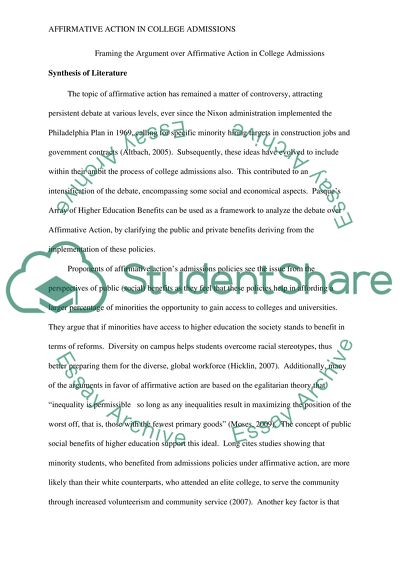Cite this document
(“Framing the Argument over Affirmative Action in College Admissions Essay”, n.d.)
Retrieved from https://studentshare.org/literature/1574198-framing-the-arguement-over-affirmative-action-in-college-admissions
Retrieved from https://studentshare.org/literature/1574198-framing-the-arguement-over-affirmative-action-in-college-admissions
(Framing the Argument over Affirmative Action in College Admissions Essay)
https://studentshare.org/literature/1574198-framing-the-arguement-over-affirmative-action-in-college-admissions.
https://studentshare.org/literature/1574198-framing-the-arguement-over-affirmative-action-in-college-admissions.
“Framing the Argument over Affirmative Action in College Admissions Essay”, n.d. https://studentshare.org/literature/1574198-framing-the-arguement-over-affirmative-action-in-college-admissions.


